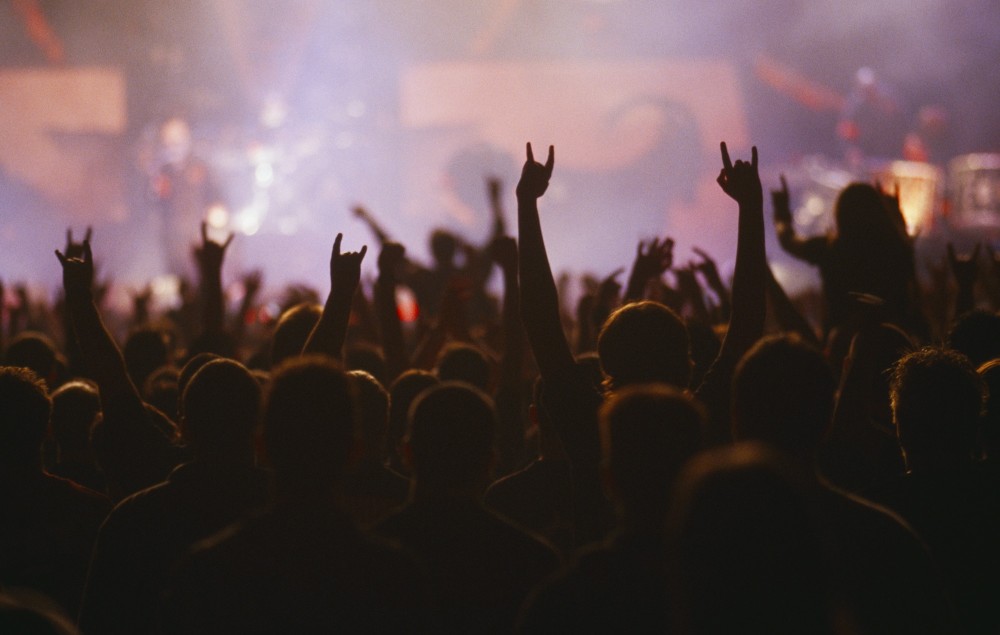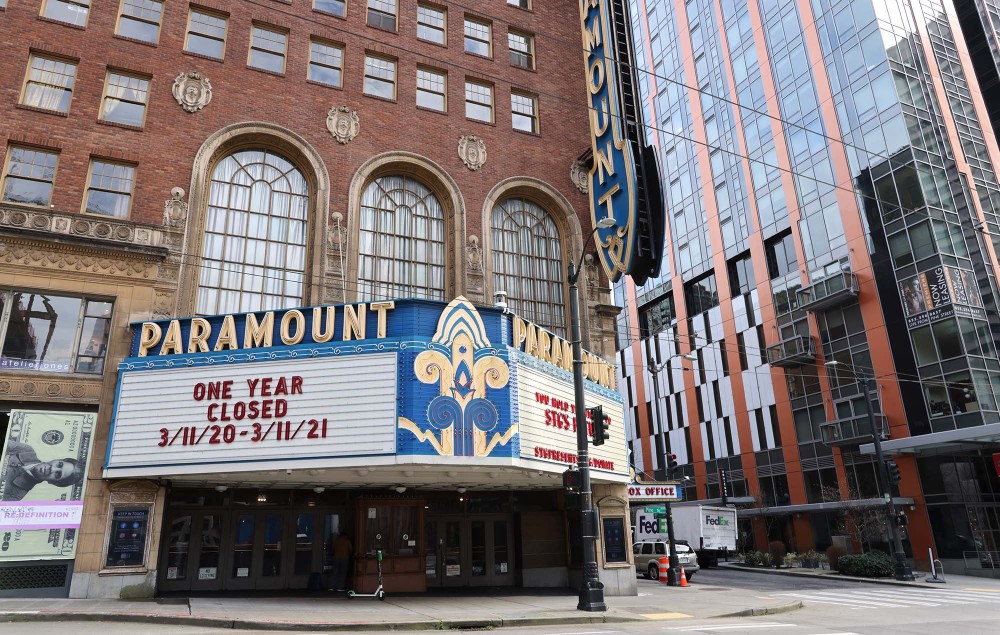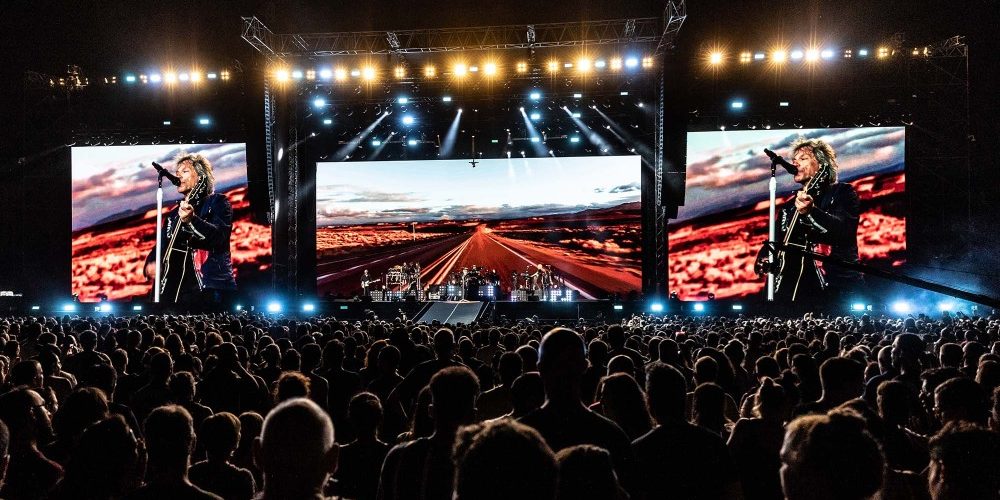Music promoters “shocked at the inability” of US government, have “no choice” but to sue over rejected COVID relief
Almost a year after the launch of their COVID-19 relief program for shuttered music venues, The US Small Business Administration is facing more than 60 lawsuits from business owners.
With litigation pending and venues still dealing with show cancellations, health risks, and revenue loss due to the ongoing pandemic, NME spoke to concert promoters, the SBA, and the National Independent Venue Association (NIVA) about issues with the program’s aid rollout.
The $16.25billion Shuttered Venue Operators Grant (SVOG) program was signed into law in December of 2020 and applications for the funding opened in April of 2021. The funds were to be dispersed to independent venues, promoters, talent agencies, movie theatres and other cultural centres who could prove they lost 90 per cent of their revenue due to the pandemic.
Venue owners who have taken their cases to court, however, said that although they met eligibility requirements their requests for aid were denied by the agency without explanation. In some cases, owners said their direct competitors were awarded grants when they weren’t – putting them at an unfair disadvantage.
“I continue to be shocked at the SBA’s inability to properly review a case file and make an expeditious decision,” Michael Savas, CEO of Superfan Live told NME. He says his concert and events promotions business which manages VIP experiences for acts like Genesis, Journey, and Bon Jovi, “spent over nine months waiting for a response from the SBA, only to be wrongfully denied with every appeal.”
As of now, Savas has been turned away by the agency three times. He decided to bring a lawsuit against the SBA and its administrator Isabella Casillas Guzman in February of this year, claiming that their decision to deny his business funds was “unsupported by substantial evidence” according to court documents.
“My direct competitors, with the same exact business model, had been funded within six months while I have been hamstrung by the additional legal and accounting fees that I have had to outlay,” he told NME.
One of his competitors Organica Media Group LLC was awarded $2,800,000 in funding according to SBA’s grantee documentation, even though Savas says they operate on a much smaller scale than his business.
“Not only is the SBA not doing the job they were set out to do by the American taxpayer and Congress, they are now actively taking money out of small businesses who have no other choice but to take these issues to federal court,” he added.
Tyrus Joseforsky, owner of concert and music festival promotions company, Flight Levelz Entertainment, told us that applying for SVOG funds “was really frustrating” because “it was delayed at a time of need for a lot of venues and promoters.” The portal to apply for funds initially crashed, and the disbursement of approved aid took three months.
At the time, Joseforky was “planning on the funds never coming,” telling NME that he thought counting on the Government equated to “setting yourself up for failure.”
He added: “We were ramping up and doing shows again. That was when those funds were supposed to come, and obviously, they didn’t. It got to the point where I wasn’t even expecting to get it.”

After the delay, however, Flight Levelz Entertainment was able to receive the requested funds, and unlike Superfan Live, they were able to “accelerate” their business, making 2021 their “best year ever.”
After going months without revenue, Joseforsky is grateful for the funding, claiming that “live music was headed for a very dark place, in general, and this grant really helped.”
“You see these spending bills and all the waste from the Government, and this is actually something that benefited entrepreneurs across the nation,” he said. “It benefited millions of people outside of just the venue owners, like the artists that are touring, the hotels, and the cities where these events happened.”
Joseforsky continued: “The list goes on and on for the benefits this program had to keep entertainment and live music alive. It was a good use of tax revenue, for people who really needed it in their time of need.”

Formed in April of 2022 as the start of COVID lockdowns, NIVA has represented independent venues, promoters, and festivals across the US. They also led the Save Our Stages campaign and lobbying efforts which resulted in the Shuttered Venues Operators Grant program becoming part of the 2020 COVID-19 national relief bill.
Two years after they started, they continue their efforts “to help ensure as many of these crucial community and cultural hubs and economic anchors not only survive but also thrive.”
When asked about the current litigation against the SBA, Audrey Fix Schaefer, NIVA’s communications director told NME that while they’re “immensely grateful for the emergency relief granted to venues that met the criteria of the SVOG program,” the association “does not take a stance on legal actions by individual venues.”
Although NIVA has continued to lobby the Government in support of independent venues, and led the campaign which led to the grant program, the SBA was tasked with administering the process, approval, and disbursement of SVOG funds.
When asked why certain requests for grants had been denied, the agency’s senior advisor for COVID programs Diedra Henry-Spires told NME: “We continue to be open and responsive, inviting over 5,000 applicants to appeal SVOG decline decisions and over 2,000 grant recipients to have their awards reconsidered while offering additional support and resources to current applicants and our nearly 13,000 SVOG grant recipients.”
The SBA also told us: “In line with Administrator Isabella Casillas Guzman’s top priority to provide economic relief to every eligible small business still struggling from the pandemic and, to be as entrepreneurial as the customers we serve, the SBA has been creative and dedicated in providing our country’s small businesses, cultural institutions, venues, theatres and other entertainment operators every opportunity to receive funding and safely recover.”
America’s performing arts venues in cities like New York drive economic growth and have been hit hard by the pandemic. Thanks to vaccines and the @SBAgov Shuttered Venue Operators Grant, historic venues like @BlueNoteNYC are bringing live music back. pic.twitter.com/SbzwKT7V9x
— Isabel Guzman (@SBAIsabel) December 7, 2021
Henry-Spires’ added: “Our commitment to helping small businesses get back on their feet, and continue creating jobs and remaining the cultural centres of our economy, has been the guiding light of the Shuttered Venue Operators Grant (SVOG) program.”
Earlier this month, the agency agreed to issue a new decision regarding Superfan Live’s request for funding by July 27 of this year. Despite the pending litigation, Savas told us he, “wholeheartedly believes the SBA is trying to do the right thing” but that the system set up to handle the grant program has “proven to be grossly ineffective.”
“Regardless of the difficulties I have had so far, I still have faith in the people and executives within the SBA,” he said. “I have no doubt that a minor clerical or admin issue has been the reason for my denial and can only hope that the SBA can empathize with business owners like me and simply pick up the phone, have a conversation, identify the misunderstanding, and resolve this issue.”
Meanwhile, NIVA told NME earlier this year that they were lobbying the US House Committee for additional funds to help independent venues dealing with, “inflation and worker shortages compounded by the fact that COVID is still ongoing.”
“There’s about $2billion left [in funding] and NIVA is advocating for more time [to use those funds],” Dayna Frank, president of the association said. “Because of the shutdowns, there were fewer concerts and fewer events to utilize the money. At the same time, venues in urban areas that were shut down completely, have use for more funds.”
The association also told NME at the time that they were working on a proposal to open the relief program to businesses that were deemed ineligible for the first round of funding. In April, a $55billion aid package for small businesses, which would update the Shuttered Venue Operators Grant Program to provide entertainment venues with more time and flexibility to use federal relief funds, passed the House.
It’s currently in the hands of The Senate.
